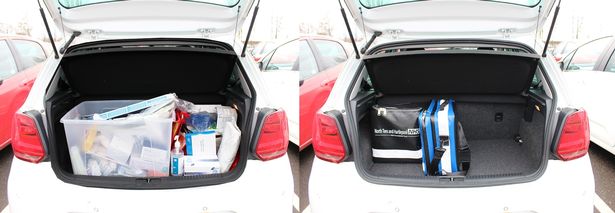Thousands of nurses spent most of the COVID-19 pandemic traveling from one gig to another, often working in some of the worst hotspots in the country. Travel nurses earn significantly more per hour than permanent nursing staff, but life on the road can be bruising.
Hospitals were forced to rely on travel nurses throughout the pandemic to prevent staffing shortages, but now that the pandemic has slowed, demand for temporary healthcare workers has dropped dramatically over the last few months. These nurses now face a choice: get a permanent nursing job – usually for a lower rate or pay – or quit the field altogether. Lots of nurses are choosing the latter.
For Reese Brown, 30, the decision to become a travel nurse was a no-brainer. In the early days of the pandemic, she took a series of temporary assignments even if it meant leaving her young daughter and family for months at a time. And the job took a toll on her mental health.
“It was a lot of loneliness,” Brown said. “I’m a single mom, I just wanted to have my daughter, her hugs, and see her face and not just through FaceTime.”
But the pay made it worth it. By July 2020, she was getting paid $5,000 a week, nearly triple her pre-pandemic pay.
But the “gold rush” has come to an end.
Brown is now back at home in Louisiana with her family. She looked into getting a regular nursing job at a local hospital, but they are only offering $2,200 a week, so she turned it down. Brown says she would’ve taken the job in a heartbeat before the pandemic, but after two “traumatic” years of working in the ICU at some of the busiest COVID-19 wards in the country, she doesn’t think it’s worth it.
“I think it’s disgusting because we went from being praised to literally, two years later, our rates dropped,” she said. “People are still sick, and people are still dying.”
With fewer temporary work assignments to go around, many travel nurses are choosing to leave the profession instead of settling down at a facility in their hometown.
“We’re burned out, tired nurses working for $2,200 a week,” Brown said. People are leaving the field, she said, “because there’s no point in staying in nursing if we’re expendable.”
During the pandemic, travel nurses earned an average of $124.96 an hour, almost three times the rate of the average registered nurse, according to latest labor statistics.
Based on the 2022 National Healthcare Retention & RN Staffing Report from Nursing Solutions Inc., a nurse recruiting firm, the appeal of making more money as a travel nurse contributed to 2.47% of registered nurses leaving hospital staff jobs.
The number of travel nurses more than doubled from 2019 to 2021, but demand for these workers is down 40% percent this year alone, according to Aya Healthcare, one of the largest travel nurse staffing firms in the industry.
With few travel nursing opportunities, Brown says she is thinking about starting her own business.
Lots of travel nurses are now considering going back to school or pursuing careers outside of nursing.
Natalie Smith, who became a travel nurse during the pandemic, says she plans to pursue an advanced nursing degree but she’s exploring careers outside of bedside nursing.
Pamela Esmond, another travel nurse, will continue looking for work as a travel nurse, but only because she can’t afford to retire early. She’s currently 59 and will need to wait until she’s at least 65 to prepare her finances.
“The reality is they don’t pay staff nurses enough, and if they would pay staff nurses enough, we wouldn’t have this problem,” Esmond said. “I would love to go back to staff nursing, but on my staff job, I would never be able to retire.”
As travel nurses turn away from the bedside, the staff shortage will only get worse – and nurses and patients will likely suffer as a result.
“Each patient added to a hospital nurse’s workload is associated with a 7%-12% increase in hospital mortality,” said Linda Aiken, founding director of the University of Pennsylvania’s Center for Health Outcomes and Policy Research.
Most nurses do their jobs out of passion, but they may feel pressure to leave the profession if they can’t perform adequate care to their patients.
“People say it’s burnout but it’s not,” Esmond said about why nurses are quitting. “It’s the moral injury of watching patients not being taken care of on a day-to-day basis. You just can’t take it anymore.”




